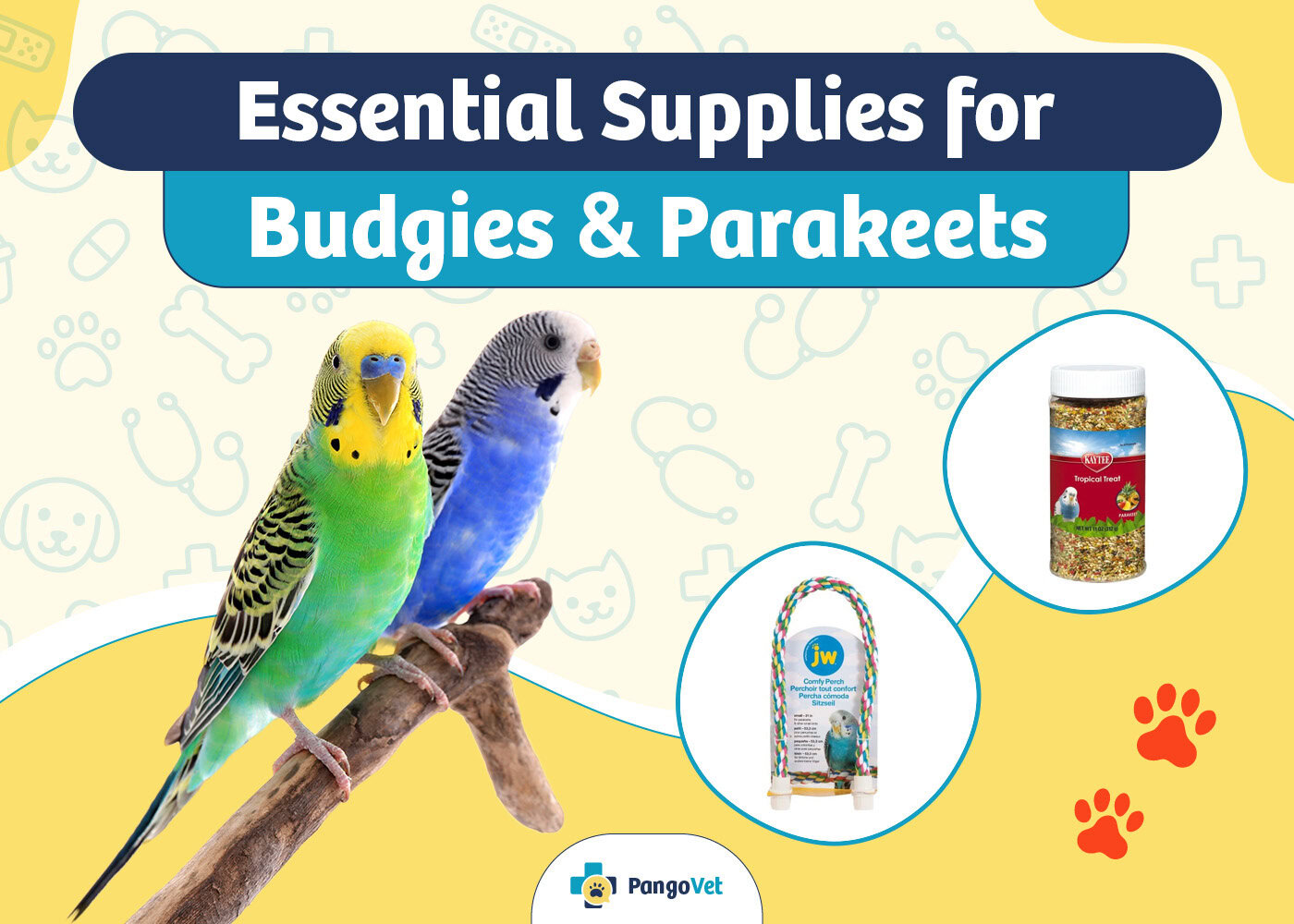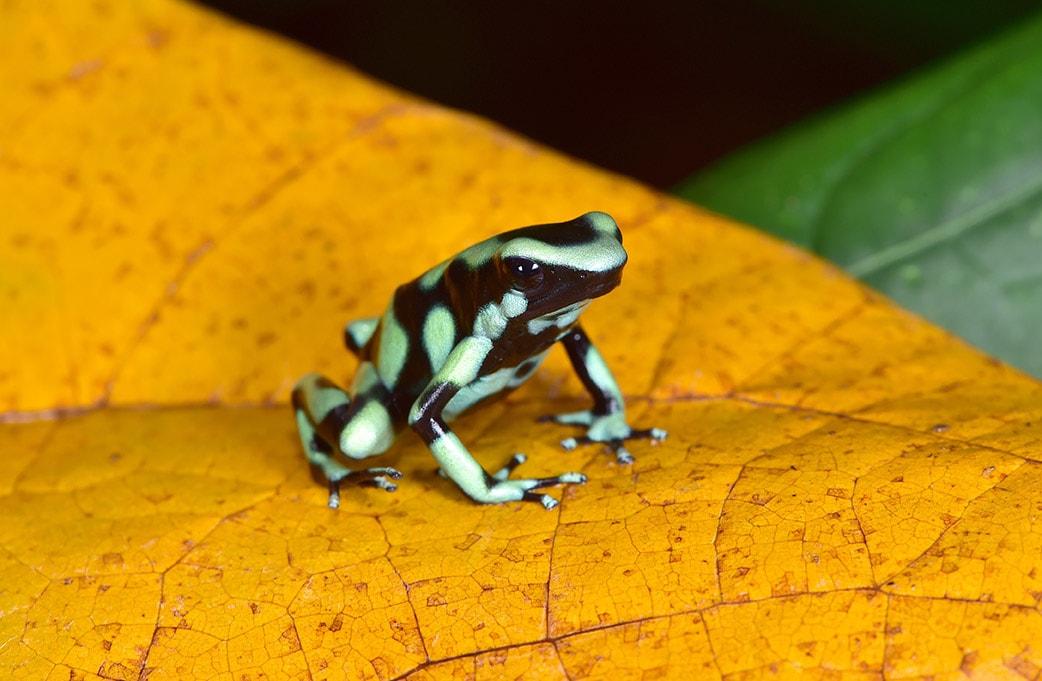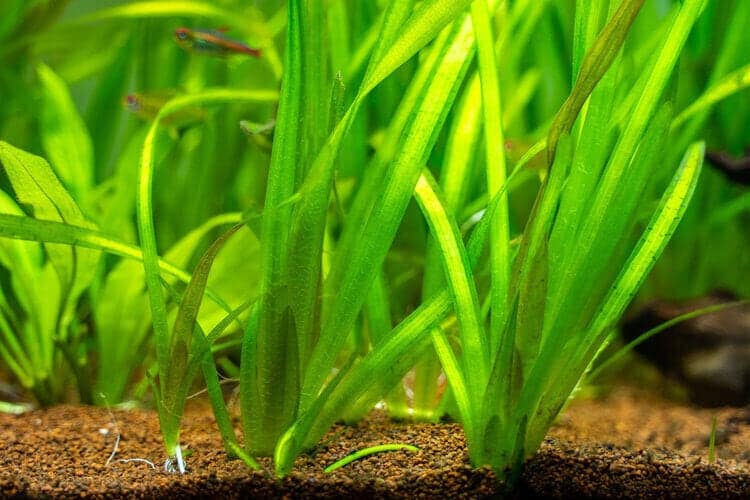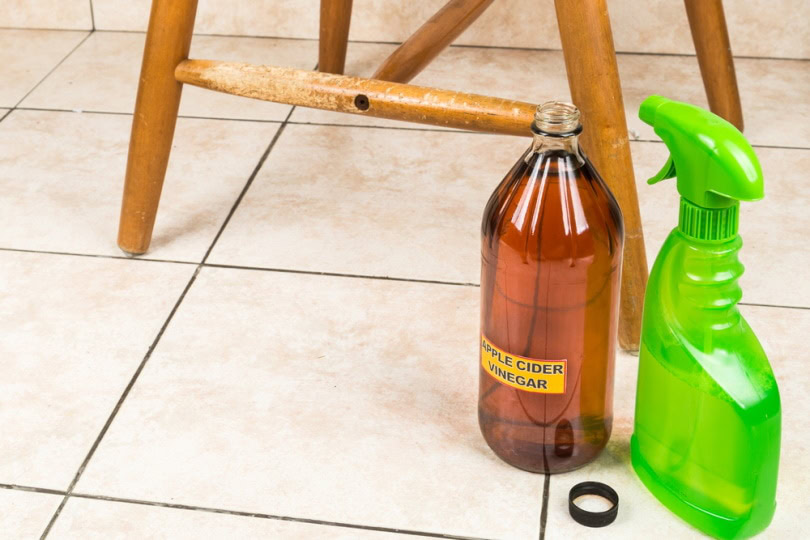Click to Skip Ahead
Choosing to adopt a bird is not a decision that you should make without consideration. Many factors go into bird ownership that first-timers don’t always realize. They’re not like dogs, where all you need is food, water, and toys to keep them happy.
If you’re considering adopting a budgie or a parakeet, there are essential supplies for helping your new feathered friend stay happy and healthy. Read on for our recommendations so you can ensure that you and your home are ready to welcome a pet bird.

The 10 Essential Budgie & Parakeet Supplies
Food & Feeding
1. Food
- Our Choice: ZuPreem Natural Daily Small Bird Food
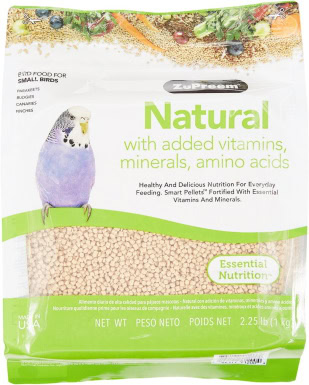
These birds can be prone to obesity and nutrient deficiencies, so a well-balanced and varied diet is essential to ensure that your pet stays healthy.
Budgies in the wild eat a widely varied diet that changes as different plants come in and out of season. The commercial seed mixes you’ll find at pet stores will usually consist of several different types of seeds, but they’re often high in fat and carbohydrates and low in vitamins and protein. These poor-quality seed diets can make your bird ill, especially considering that most birds will take just one or two seeds they particularly like and turn their beak up at all the others.
Since seed diets are nutritionally incomplete, commercial seeds should only make up a small portion of your bird’s diet. If your pet has only been fed seeds until you’ve adopted them, you’ll need to start replacing these slowly to ensure that your bird is getting the highest quality diet.
Budgies and parakeets need a diet consisting mainly of pellets specifically formulated for birds. These come in many different sizes and shapes and have been developed to meet your pet’s nutritional needs. Converting mature birds to pellets after a lifetime of a seeded diet can prove to be difficult, but it is necessary. Make the transition slowly, and aim to have the pellets make up around 75%–80% of your bird’s diet.
We love ZuPreem’s Natural pellets, as they’re full of wholesome and natural foods that your bird requires to ensure that their nutritional needs are met. These are formulated with additional nutrients, so you don’t need to add any extra vitamin or mineral supplements to your bird’s diet.
The other 20%–25% portion of your pet’s diet should consist of fruits and veggies. Keep these in a separate bowl from the pellets, and only allow fruits and veggies to be in their cage for a few hours to prevent spoilage.
Only use fruits as occasional treats, as they’re high in sugar, which can affect your bird’s stool and mood. The best fruits and veggies to offer your budgie and parakeet include:
- Broccoli
- Cauliflower
- Carrots (and carrot greens)
- Podded peas
- Cilantro
- Spinach
- Celery stalks
- Asparagus
- Zucchini
- Parsley
- Pepper
- Melons
- Bananas
- Mango
- Pineapple
2. Bowls
- Our Choice: Caitec Featherland Paradise Bird Cage Feeder
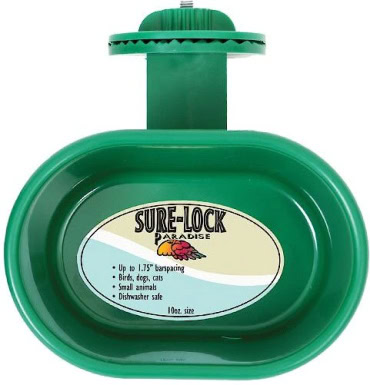
Your bird will need at least two, possibly three, bowls. You’ll need one for pellets, one for water, and one for treats. The most commonly used bird bowls will clip onto a side of their cage, which will keep your bird from feeding at the bottom of their cage.
Wide bowls will be easier for your bird to access than deep ones. Many have built-in perches, which allow for easy meal times by giving birds a place to stand while they eat or drink.
We love the Sure-Lock feeder from Caitec. It’s made from a heavy-duty polymer material that can withstand even the most destructive birds. Its space-saving oval shape makes feeding time easy for your pet and gives them more room in their cage to spread their wings. These bowls can be used for water and pellets.

Housing
3. Cage
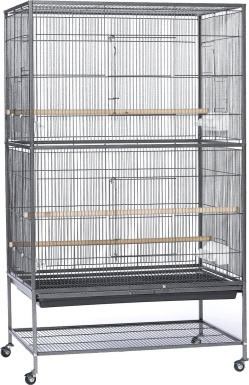
The best birdcage is the biggest one that you can find that will fit in your space. Budgies are active birds and need a cage that provides plenty of room for them to move around and play. A cage that’s roughly one-and-a-half times the width of your bird’s wingspan should give them the space that they need. If you have more than one bird, you’ll need to double the size of the cage to give them all enough room.
Another factor to consider is the space between bars. Cages with inappropriate bar spacing can cause injury to your bird. It’s generally recommended that the bars have ½-inch to 5/8-inch spacing for budgies and parakeets.
Once you have an idea of the cage’s size, you need to consider its material. It should be made of non-toxic, simple-to-clean metal. We love this wrought iron cage from Prevue Pet Products. It’s huge at 31L x 20.5W x 53H inches, with ½ inch cage bar spacing. It also has an integrated storage shelf for all your bird’s food, toys, and supplies. The cage is easy to access, with two large hinged doors on the front and six smaller side access doors throughout the rest of the cage.
4. Perches
- Our Choice: JW Pet Small Comfy Bird Perch
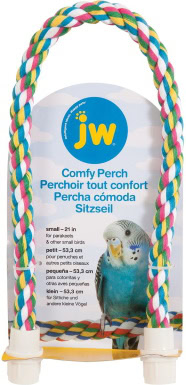
Birds use their perches for a variety of reasons: climbing, playing, standing, cleaning their beaks, chewing, and even sleeping. In the wild, they use branches and twigs in all different shapes, sizes, and textures as perches. Pet birds will need the same kind of variety in their cage. If the perches are all the same size, they can get sore feet, as they’ll always be putting the same amount of pressure on the same spots of their feet.
Perches come in a variety of materials and size options. Wood branches are the best because they’re easy to find in different diameters. You can even use real wood branches from nature, but you’ll need to ensure that they’re from non-toxic trees and have been washed and disinfected.
Since most of us don’t have the time or means to go out and find, wash, and disinfect our own branches, rope perches are fantastic alternatives. The best ropes are made of hemp or untreated cotton and are braided in nature. You can find bird ropes in a wide variety of lengths and diameters.
We love the JW Pet rope perch because it comes in three sizes (14, 21, or 32 inches). It’s the perfect size for parakeets and budgies and attaches easily to all wire cages.
5. Cage Liners
- Our Choice: Prevue Pet Products T3 Bird Cage Liner
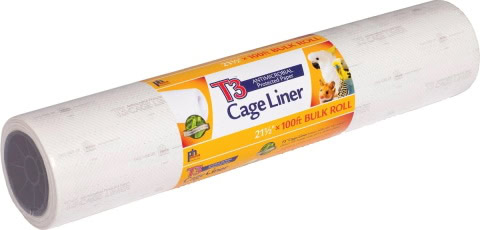
A cage liner is exactly what it sounds like: a liner that is placed at the bottom of your bird’s cage. Its sole purpose is to keep the cage bottom fresh, clean, and simple to tidy up.
There are many different types of lining materials to choose from. Most bird aficionados recommend using paper; newspaper, paper bags, or paper towels are among the most cost-effective options. Another advantage is that paper lays flat, so you can keep an eye on your bird’s droppings to ensure that they’re healthy.
Other bird parents prefer to use wood shavings. Don’t choose a type of wood that will be toxic to your bird if they come into contact with it. The scent of some wood will act as an irritant on your bird’s already sensitive respiratory system. If you use wood chips, untreated pine shavings seem to be the best pick.
Sand or gravel sheets are other common cage liners. Unlike wood shavings, sand sheets will lie flat and allow for easy clean-up.
We love Prevue Pet Products T3 Antimicrobial Paper Liner. This product comes in several different sizes, so finding one that fits your bird’s cage shouldn’t be a problem. It’s an all-natural liner that’s microorganism resistant and safe to use around your bird. It is easy to change out and makes keeping your bird’s cage clean a breeze.

Toys & Treats
6. Toys
- Our Choice: Planet Pleasures Pineapple Foraging Bird Toy
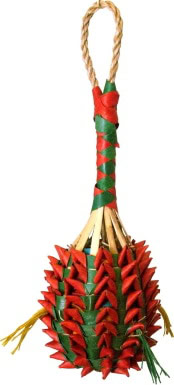
Budgies and parakeets are smart animals that can become bored easily as pets. Boredom can lead to undesirable and harmful behaviors like feather plucking and aggression, so providing toys for your birds is an absolute must to keep them busy and enriched.
Our best advice for buying bird toys is to get a lot of them. Variety is the spice of life, and having plenty of toys to switch in and out from week to week will keep your bird engaged and boredom-free.
There are countless toy types to choose from, and the reality is that you’ll need to find your bird’s favorites through trial and error. Swings, ladders, foraging toys, noisemakers, and climbing toys are just a few examples.
We love the Planet Pleasures Pineapple foraging toy because it’s not only fun for your bird to play with, but it also encourages their natural behaviors. It’s made with materials that your pet might find in their natural habitat, and they’re fibrous, which can help condition their beak and prevent it from overgrowing. There are little hiding spots between the spikes that add stimulation and encourage forging.
7. Treats
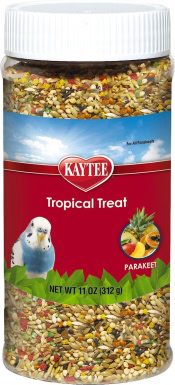
You might want to consider buying commercial treats, even though they’re not necessary, before bringing your new bird home. Budgies tend to prefer treats that are bright in color and interesting in texture and have flavors they’re not getting daily. Seed sticks and dried fruits are great options because they tend to be favorites of budgies and parakeets.
We love Kaytee’s Fiesta Tropical Treats, as they’re full of apples, real tropical fruits like papaya, pineapple, and coconut, and seeds, which most birds love. These treats are easy to sprinkle on top of your bird’s daily pellets and are small to encourage natural behaviors like foraging.

Care Items
8. First Aid Supplies
- Our Choice: Miracle Care Kwik-Stop Styptic Powder
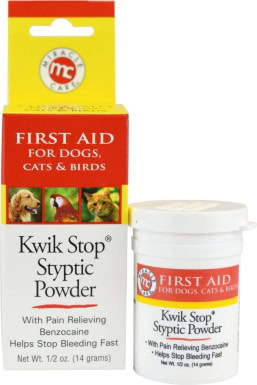
It’s always a good idea to be prepared for when the unexpected happens. There are several things that you should have on hand at all times in case you need to administer first aid when you cannot get your bird to the vet.
General first aid supplies that can come in handy in case of bird injuries include:
- Scissors
- Tweezers
- Magnifying glass
- Penlight
- Wire cutters
- Nail clippers
- Gloves
You should also consider adding hemostatic products to your kit. These items, like cornstarch, paper towels, or commercial hemostatic products, can control any bleeding that might occur.
We recommend adding Miracle Care’s Kwik Stop Styptic Powder to your bird’s first aid kit. This product features benzocaine, which can help stop minor cuts from bleeding and relieve some of the pain and itching that might come with these types of cuts. The main ingredient in this powder is ferric subsulfate, which gets to work as soon as it’s applied to stop the bleeding.
Important Notes: Never place any hemostatic product into large wounds or those that are near the chest or belly. Do not apply any ointments or creams to your bird unless you have been advised to do so by your vet.
9. Cleaning Spray
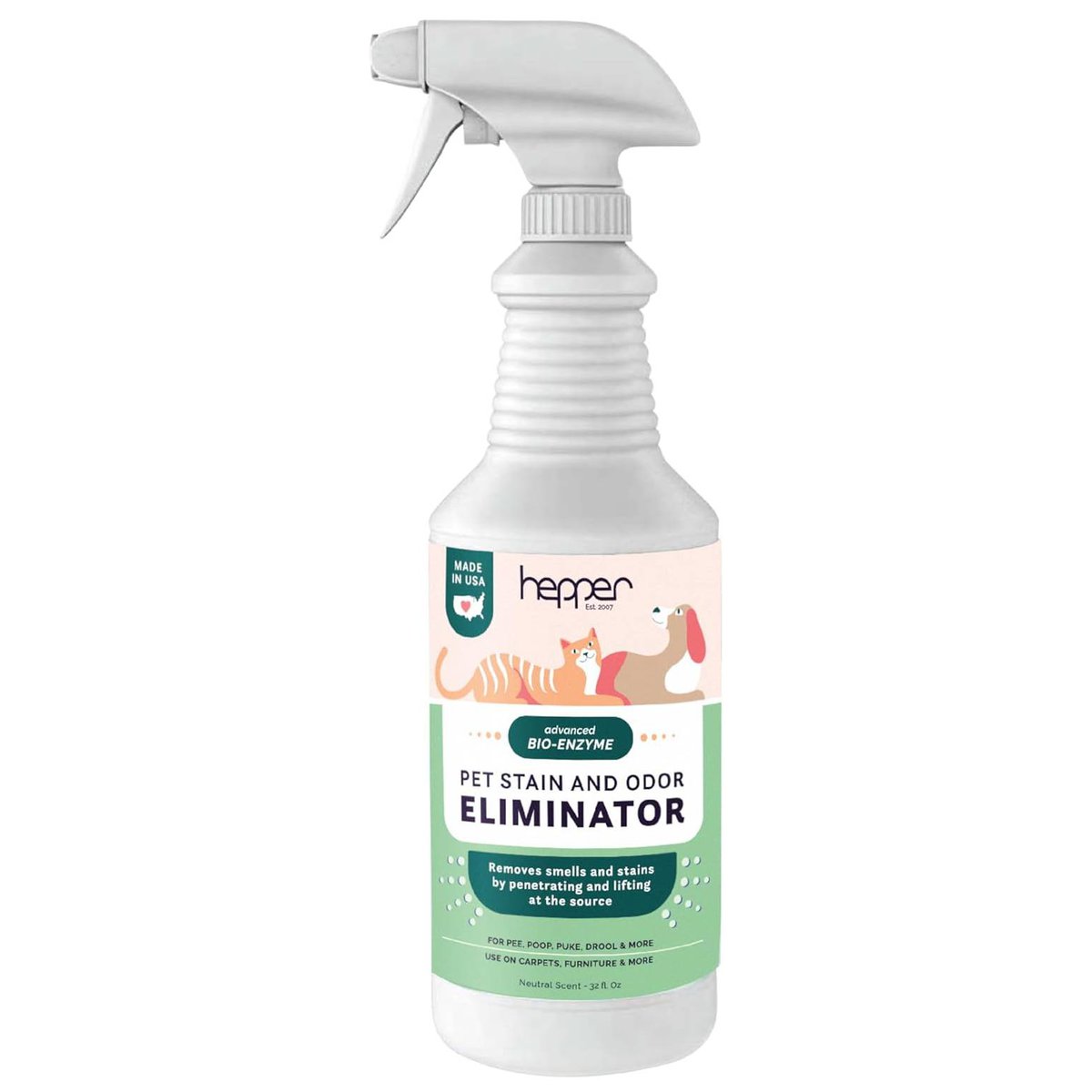
If you’ve owned a bird in the past, you know how messy they can get. Their droppings will be everywhere, and so will their seeds, treats, and water. You need a bird-safe cleaning spray that can tackle all the messes that your budgie will make.
The Hepper Advanced Bio-Enzyme Pet Stain & Odor Eliminator Spray is a fantastic option not only for bird owners but also for multi-species households. Instead of masking smells, this cleaner works by binding, lifting, and removing pet-related odors and stains. It can be used on numerous surfaces, including fabrics, furniture, carpets, and flooring.
Perhaps the best feature of this cleaner is its neutral scent that won’t fill your home with artificial fragrances and chemicals. This is especially important for birds, as they have susceptible respiratory systems and can actually die from exposure to poor-quality cleaning supplies and chemicals.
At PangoVet, we’ve admired Hepper for many years and decided to take a controlling ownership interest so we could benefit from the outstanding designs of this cool cat company!
10. Cuttlebone
- Our Choice: Caitec Cuttlefish Bone Bird Toy
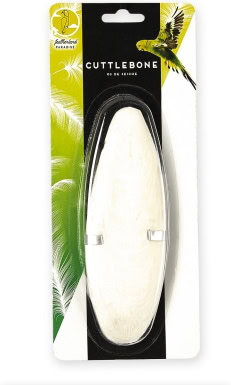
Budgies and parakeets essentially use their beak as a third foot. They use it to hold their food and get around their cages. It’s no surprise, then, that all this use can eventually wear down the beak over time. Fortunately, evolution has made it so your bird’s beak will never stop growing; if it did, birds in the wild would eventually wear their beaks out entirely.
Since your bird’s beak won’t stop growing, though, you’ll need to provide them with something that enables them to wear it down to keep it in peak condition. A cuttlebone provides the natural calcium and minerals that your bird needs to keep their beak trim and sharp. It’s an essential dietary supplement that can also help with the formation of bones and blood clotting.
We recommend Caitec’s Cuttlefish Bone Bird Toy. It’s an affordable price and will easily attach to almost any birdcage. This product’s unique texture not only encourages your bird to keep their beak trim but will also provide enrichment and prevent boredom.

Conclusion
Although it may seem like a lot of supplies to buy, these essentials will make life easier for both you and your new bird. Don’t forget to research budgie and parakeet care before going through with your adoption to have a clear understanding of your new role as a bird parent.
Related Reads:
Featured Image Credit: Nagy Rezkalla, Shutterstock
